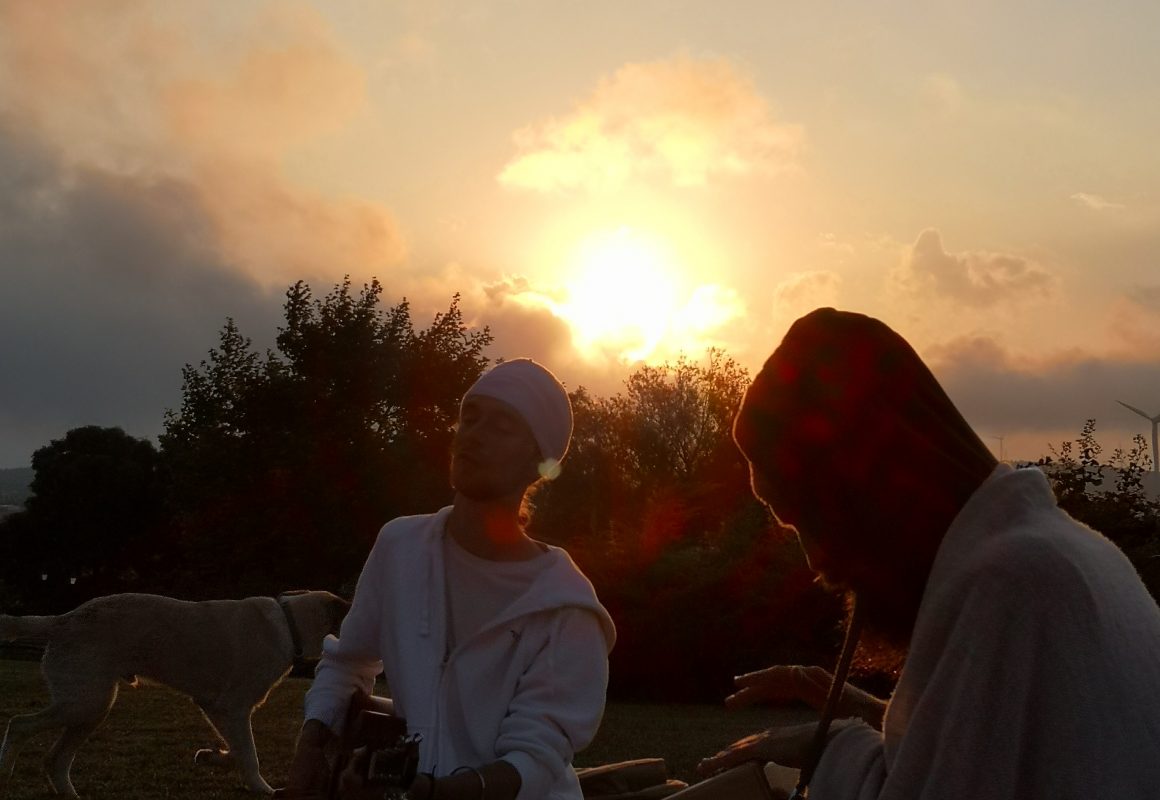In spiritual teachings, the Unknown, welcoming its presence versus what we know, is often a topic. A common concept is that the more we know the more we realize that we don’t know, or we mention the benefits of stepping into the Unknown.
Recently the question came: what do others, especially new students, understand?
We were never asked. But at the same time, do really students ask ALL that they do not understand, or they rather take it in as a non-understandable (at least for now) universal truth that belongs to spiritual teachings? I remembered that, at the beginning of my spiritual path, I did give for granted the truth of special sentences like “We are One”, “We are blessed”… without understanding what this really meant. And this was somewhat confusing, especially leaving the yoga room and finding myself in hostile environments where I did not feel at all this oneness and this blessing.
So, let’s try to put into words, what does it mean to be or step into the Unknown?
The question is, how do we make a universal statement about the human experience? What is true? It so incredibly varied in its expression that what is true for one person is often not for another. But for sure what we all have in common is our capacity to become conscious. And often, the more people expand their consciousness, the more they become aware that they know little about awareness. Keeping expanding and discovering creates new and infinite opportunities for getting to know more (and realizing that this “more” is still so tiny…).
When we are aware that we do not know, we keep on getting to know… The condition is humility at every step. It is humility that keeps the path going and makes you never reach the end. Humility makes you unlimited.
There are two sides to our limitations:
1. If we believe we know, we stay in your box made of arrogance. When we think we know, the path ends. When we inhale, our lungs are full and there is no space for further inhaling. We can’t add anything else to it more that we can’t add air to our full lungs. Human nature inevitably defaults to knowing because the learning and memorizing are instinctively linked to our survival. We have to make a conscious effort to bring ourselves back to not knowing over and over again.
2. On the other hand, if we get discouraged because we understand that we do not know, we have lost our humility as well, because this judgment comes from a frustration of the limited Self. It’s easy to fall into knowing that we don’t know something and become a victim or blame ourselves. We are not opening ourselves to the Unknown but instead regret that we cannot control the reality through knowledge and feel diminished.
Not knowing is a subtle attitude. It is an empty container – the cup of prayer of the heart. This requires that we open and hold the space for everything falling into our field of awareness. In this sense, everything that we know or we come to know is an object in our awareness. The concept of not knowing becomes another object to be held in awareness.
Yogi Bhajan’s saying “Are you consciously conscious that you have a consciousness?” expresses this openness. Similarly, Gurdjieff shares that liberation is possible through the practice of bringing awareness to the experience of your awareness. This is a process of noticing yourself in relationship to the objects in your awareness.
The practise of meditation offers a chance to become aware of ourselves being aware. We develop a watcher that observes us doing and thinking.
It is possible to try this at all times, not only in meditation. Now you are reading and you can become aware of that. At the same time, you can be aware of your position, the sensations of your body, the breath. You might hear sounds and become aware at the same time as you hearing those sounds. And you are thinking… being aware that you think. You do not know what you will be reading next and this is what keeps you going on with curiosity.
The constant oscillation of losing one’s centre and continually coming back to it is what practising awareness is and it keeps us alive in the present moment. Without it, the present moment is merely a dull repetition of the past. We get bored, demotivated, depressed, lose the sense of life and the excitement for what is there and what will come.
Fears hold us back and make us often choose boredom over excitement because the benefit of boredom is comfort.
Imagine opening up to the experience and full possibility of life. You may have absolutely no idea on what comes next into your life but you have a wish to create a project. You may abandon it because you believe that you do not know how to proceed. Or you recognize that you don’t know and make yourself available to the possibilities. Your project will surely take form, but most probably not in the way you expected!
This is as true in the details of daily life as it is in our destiny and life purpose. What we know is often a projection of the past. Not knowing is an opening into a future that is not defined by the past.


